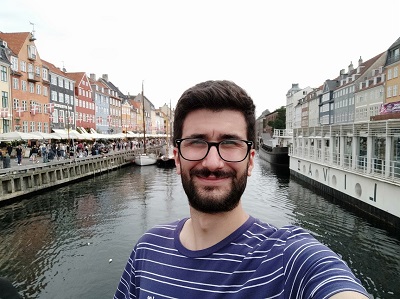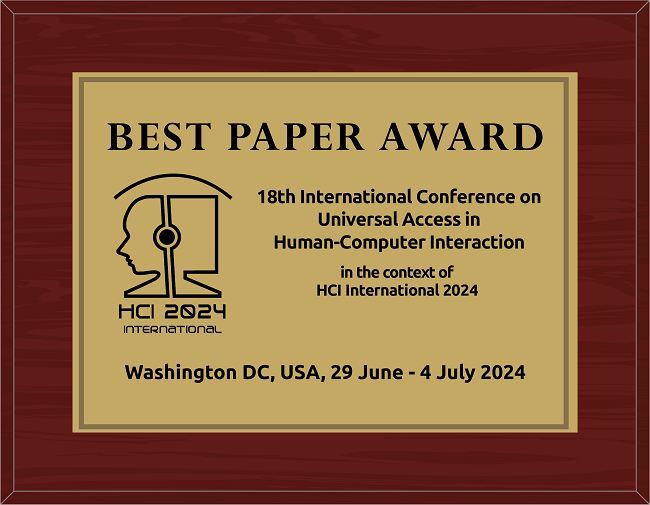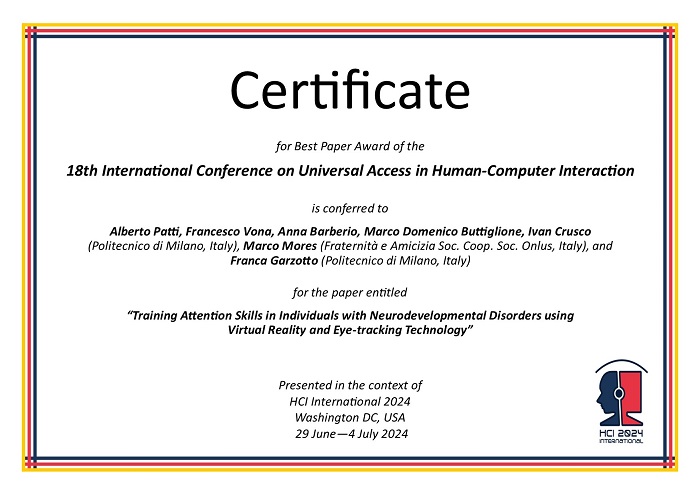
The Best Paper Award of the 18th International Conference on Universal Access in Human-Computer Interaction
has been conferred to
Alberto Patti, Francesco Vona, Anna Barberio, Marco Domenico Buttiglione, Ivan Crusco
(Politecnico di Milano, Italy),
Marco Mores (Fraternità e Amicizia Soc. Coop. Soc. Onlus, Italy),
and Franca Garzotto (Politecnico di Milano, Italy)
for the paper entitled
"Training Attention Skills in Individuals with Neurodevelopmental Disorders using Virtual Reality and Eye-tracking Technology"

Alberto Patti
(presenter)

Best Paper Award for the 18th International Conference on Universal Access in Human-Computer Interaction, in the context of HCI International 2024, Washington DC, USA, 29 June - 4 July 2024

Certificate for Best Paper Award of the 18th International Conference on Universal Access in Human-Computer Interaction presented in the context of HCI International 2024, Washington DC, USA, 29 June - 4 July 2024
Paper Abstract
"Neurodevelopmental disorders (NDD), encompassing conditions like Intellectual Disability, Attention Deficit Hyperactivity Disorder, and Autism Spectrum Disorder, present challenges across various cognitive capacities. Attention deficits are often common in individuals with NDD due to the sensory system dysfunction that characterizes these disorders. Consequently, limited attention capability can affect the overall quality of life and the ability to transfer knowledge from one circumstance to another. The literature has increasingly recognized the potential benefits of virtual reality (VR) in supporting NDD learning and rehabilitation due to its interactive and engaging nature, which is critical for consistent practice. In previous studies, we explored the usage of a VR application called Wildcard to enhance attention skills in persons with NDD. The application has been redesigned in this study, exploiting eye-tracking technology to enable novel and more fine-grade interactions. A four-week experiment with 38 NDD participants was conducted to evaluate its usability and effectiveness in improving Visual Attention Skills. Results show the usability and effectiveness of Wildcard in enhancing attention skills, advocating for continued exploration of VR and eye-tracking technology’s potential in NDD interventions."
The full paper is available through SpringerLink, provided that you have proper access rights.